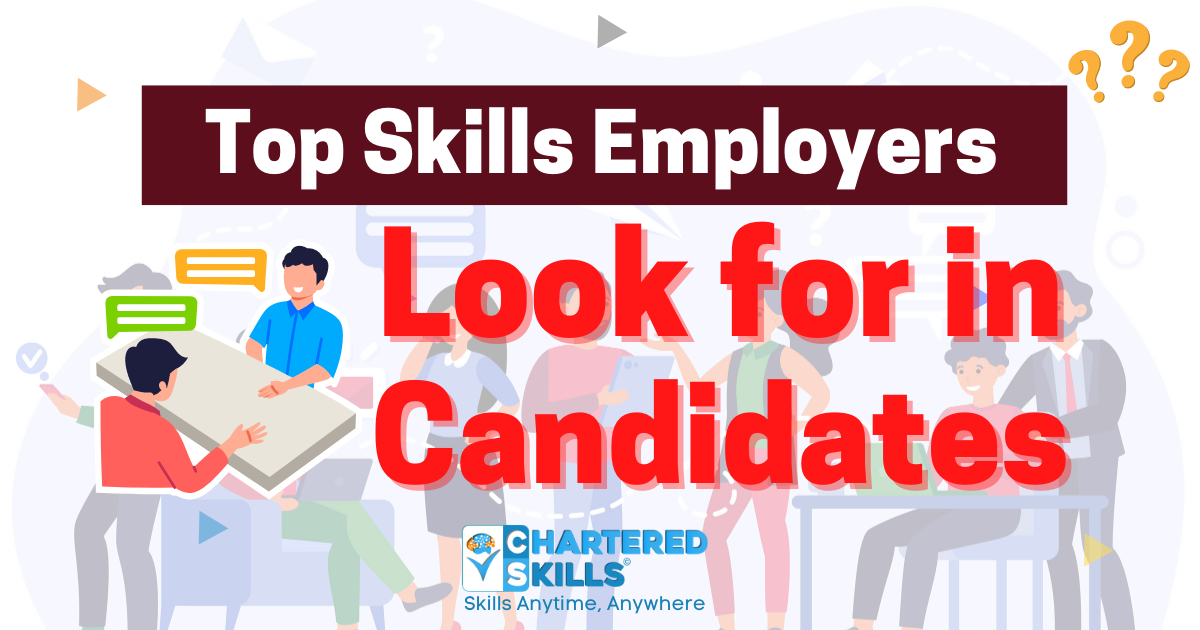


What skills are employers looking for in candidates today? It’s the toughest & most important question for job seekers posing a real challenge while writing resumes or during the recruitment process. What are the most important skill sets employers look for while choosing candidates? How do employers assess your skills and do they actually read in detail those carefully curated skills listed on your resume?
Here’s a list of all those things and more.
Before we go into it - let’s give you a brief explanation on what each of these means. Soft skills are non-technical skills that describe how you work and interact with others. Unlike hard skills, they're not necessarily something you'll learn in a course, like data analytics or programming. Instead, they reflect your communication style, work ethic, and work style. They are also tough to teach & measure. Hard skills are objective, quantifiable skills gained through training, school, or work experiences. Hard skills are often usually something that can be taught or learned.
Soft skills have proven to be a clear favourite among employers. During a 200 employer survey, it was found that 61% prefer soft skills over hard skills. This does make perfect sense as working with others is a crucial part of virtually every job in every industry. Whether it is interacting with colleagues, customers or any stakeholder in the organisation, it is essential to navigate the complexities of human interactions.
This has been a clear win in other studies that have been done with regards to skill sets that employers are looking for.
Teamwork is the soft skill that tops the preference of most recruiters & employers based on several surveys done. You have to work effectively with your colleagues to deliver the best results for your employer. And effective communication is also extremely important - whether it’s between colleagues or with clients.
Interestingly, even though soft skills are in high demand, it is often found that they are missing from most candidates’ resumes.
Other soft skills that play a vital role in the employers’ perception of employees, of course, includes communication which means both internal & external communication. And skills like time management, problem-solving, creativity, emotional intelligence & decision-making are also extremely important to employers’ today as the world progresses to a customer-focused approach across most industries.
Now let’s move from soft skills into the skills that employees or potential candidates always bring to the table - hard skills. These, as mentioned earlier, include the tangible skills that have been acquired through some form of education, training or knowledge. While coding & software development are some obvious hard skills available in the market - it’s important to know what other hard skills that are not always so obvious - are employers’ keeping an eye out for.
Based on surveys done across several industries by reputed market research & IT organisations - it turns out that analytical skills are the top preference for employers’ while evaluating hard skills that potential candidates bring with their resumes. Again, this makes sense. A big part of analytical skills involves developing insights from data, and the data economy is worth billions in the U.S. alone. Everyone wants a slice of that very lucrative pie. There is no doubt that basic computer knowledge & high-level IT skills are the next preference. In a world where all industries are tech reliant - this is, of course, logical. So it’s important for technophobes to get on the tech train and upgrade their tech skills so as to not become redundant in the workforce.
Customer service skills are definitely in demand along with presentation skills, project management, graphic designing & writing. It’s interesting to note here that when Zety surveyed over 200 recruiters in 2020 to understand what skills were becoming popular & relevant in the market - they found a split here with regards to gender. While almost 60% male respondents rated analytical skills as the most important, only 44% female respondents felt the same way. But with customer service, this was flipped as 57% female respondents felt it was an important skill as compared to only 34% males.
During a 2020 survey, it was found that over 80% recruiters pay a lot of attention to the skills section in resumes. So getting your skills right in your resume is key to grabbing their attention. But you must definitely not copy the most sought after hard & soft skills we’ve mentioned here because recruiters are often looking for skills that are tailored to the role they’re recruiting for.
One way to write a well-targeted skills list is to first look at & note down the skills that the job description mentions. Using that as a reference point, start including any of your own skills that match the job requirements - whether hard or soft. There could also be transferable skills that are applicable to that particular role - use them too. But be truthful.
A resume is not sufficient for recruiters & decision-makers to understand candidates. While they may start with your resume, to make a final choice, they need to dig deeper. And that’s where the dreaded interview comes in. The job interview is the main step in which recruiters scrutinise candidates deeper & try to verify the skills & experience mentioned on the candidate’s resume. Through a research effort, it was found that 60% of recruiters verify a candidate’s skills through questions & other evaluation methods. And while 40% don’t do that, it’s definitely not worth taking a chance.
So work hard on creating tailor-made resumes while applying for jobs and make it a point to list out both your hard & soft skills. Be honest, truthful & hardworking and let recruiters notice it in your resume.